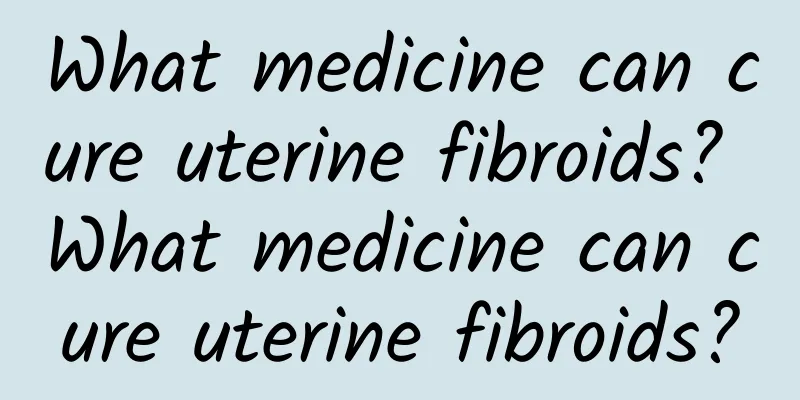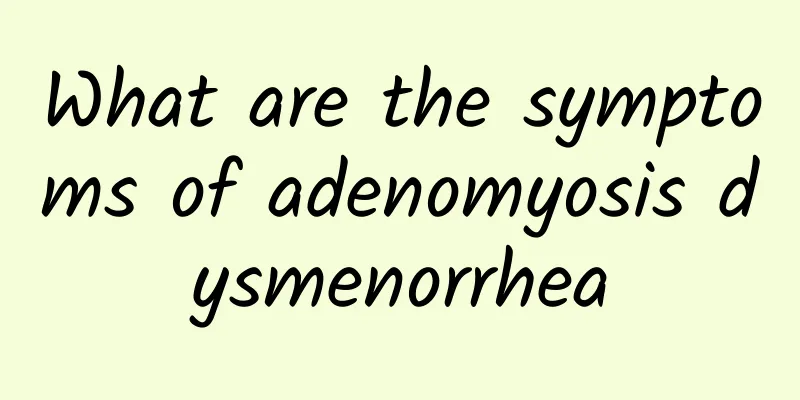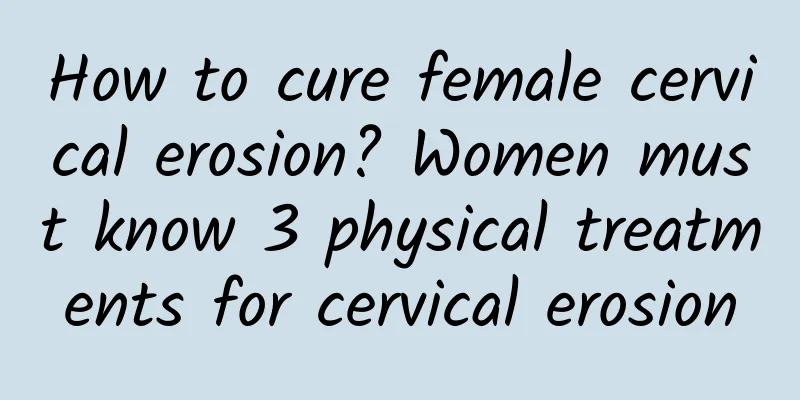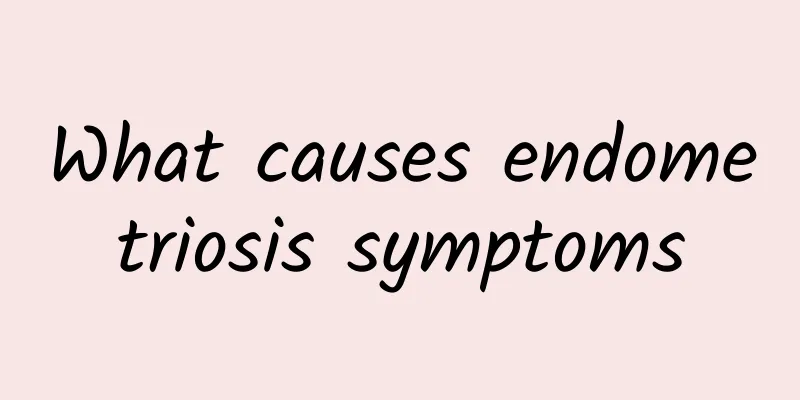What medicine can cure uterine fibroids? What medicine can cure uterine fibroids?

|
Uterine fibroids are a common disease that affects the female reproductive system. Its main symptoms include irregular menstruation, pelvic pain, and abnormal vaginal bleeding. For women with uterine fibroids, finding a fast and effective medication becomes the key to solving this problem. However, it should be noted that there is no specific medication that can completely eliminate uterine fibroids. However, some medications can provide some relief and management. This article will introduce the commonly used drug treatments for uterine fibroids. 1. Luteinizing hormone agonists Luteinizing hormone agonists are a class of drugs that can inhibit the growth and reduce the size of uterine fibroids to a certain extent. These drugs can slow the development of symptoms by inhibiting the secretion of estrogen and reducing the blood supply to the endometrium. However, it is important to note that these drugs only have a temporary effect and cannot completely eliminate uterine fibroids. 2. Progesterone preparations Progesterone is a hormone associated with the corpus luteum, commonly used to regulate the female physiological cycle. For patients with uterine fibroids, progesterone preparations can reduce menstrual volume and slow the growth of fibroids by inhibiting the secretion of estrogen and adjusting hormone balance. However, the effect of progesterone preparations is temporary, and once discontinued, fibroids may grow again. 3. Receptor modulators Receptor modulators are a class of drugs that work by regulating the activity of hormone receptors. For example, progesterone receptor modulators (PRMs) can reduce the growth rate of uterine fibroids and relieve symptoms. Selective estrogen receptor modulators, on the other hand, can counteract the development of uterine fibroids by reducing the effects of estrogen. The use of receptor modulators may need to be discussed further with your doctor. 4. Nonsteroidal anti-inflammatory drugs (NSAIDs) NSAIDs are a class of drugs that have analgesic and anti-inflammatory properties and are often used to relieve the pain and discomfort caused by uterine fibroids. These drugs can achieve the effect of relieving symptoms by reducing the inflammatory response and inhibiting the synthesis of prostaglandins. However, it is worth noting that NSAIDs can only provide temporary relief and cannot treat the fibroids themselves. Drug treatment for uterine fibroids mainly manages the disease by regulating hormone balance, inhibiting fibroid growth and relieving symptoms. However, these drugs do not have the function of eliminating uterine fibroids. If patients want to achieve a more thorough treatment effect, they can consider surgical intervention or other treatment methods. Therefore, when choosing drug treatment, it is best to fully communicate and discuss with the doctor to develop a treatment plan suitable for the individual to achieve better results. |
<<: What is the TCM name for uterine leiomyoma? What is uterine leiomyoma?
Recommend
What should I bring to the hospital for an abortion? Which hospital should I go to for an abortion?
What should I bring to the hospital for an aborti...
How to treat cervical warts
As we all know, cervical warts can cause great ha...
The easiest way to delay your period
There is no one-size-fits-all answer to the simpl...
What are the symptoms of cervical erosion?
Cervical erosion is a common gynecological diseas...
Treatment of dysfunctional uterine bleeding
Menopausal functional uterine bleeding is general...
Can female menopause really be cured?
Can female menopause really be cured? According t...
Precautions after ectopic pregnancy surgery
Avoid getting pregnant again after ectopic pregna...
Weight loss secrets: Weight control tips as easy as brushing your teeth
Many people often ask me "what to eat",...
What to eat for abnormal leucorrhea
Abnormal leucorrhea can be improved by adjusting ...
Can I have an ovarian cyst and get an IUD inserted? When can I get pregnant?
Can I have an IUD inserted if I have an ovarian c...
What are the symptoms of threatened miscarriage
The symptoms of threatened abortion are mainly va...
5 "rust removal" exercises that office workers must learn to get rid of the harm of sitting for long periods of time!
At work, we stay in the office for a long time, s...
If you want to prevent adnexitis, you must pay attention to its causes
Adnexitis is a common gynecological disease among...
Learn more about the early symptoms of cervical hypertrophy
The appearance of cervical hypertrophy affects ou...
What are the causes of irregular menstruation in women? How to regulate irregular menstruation in women
Irregular menstruation is a problem for many wome...









